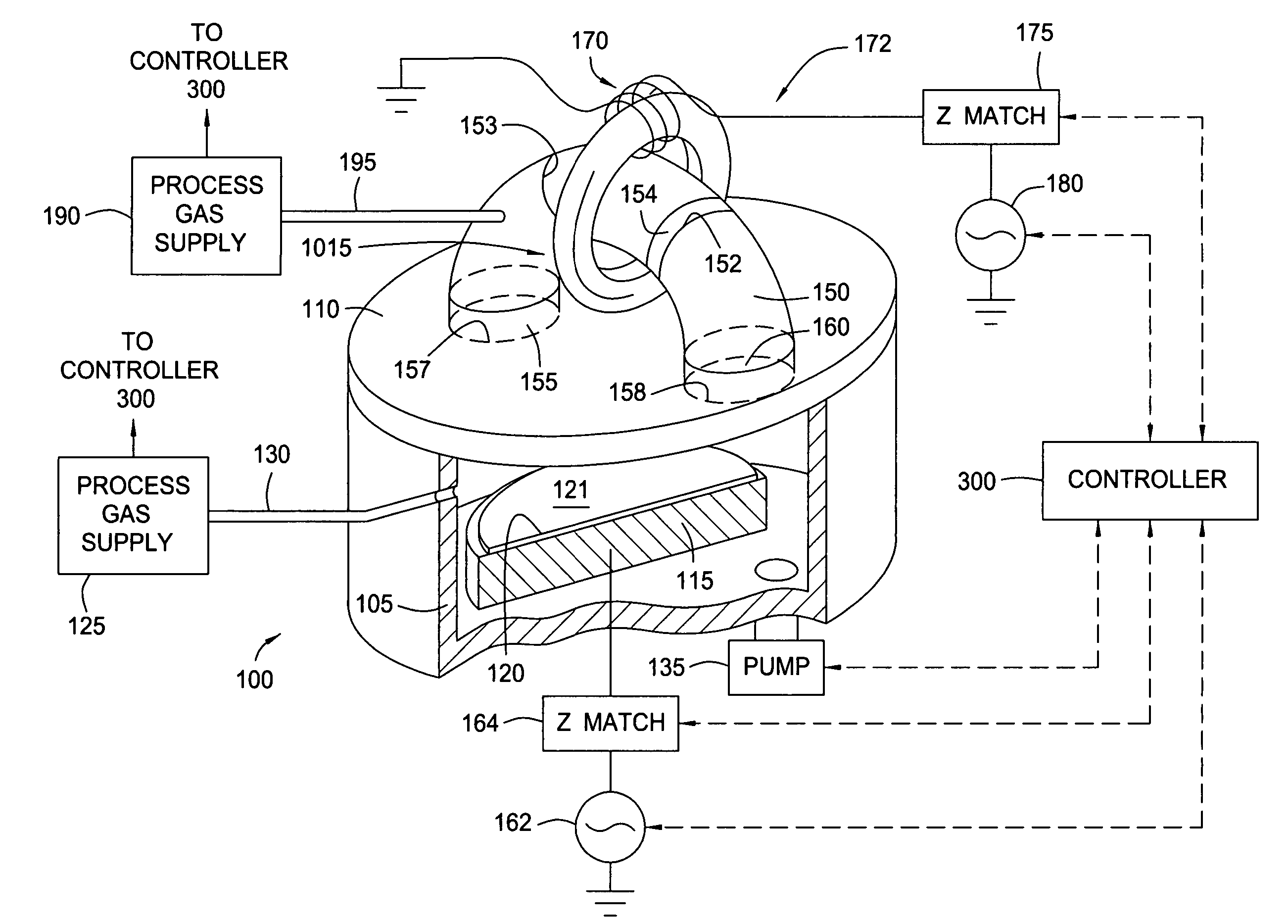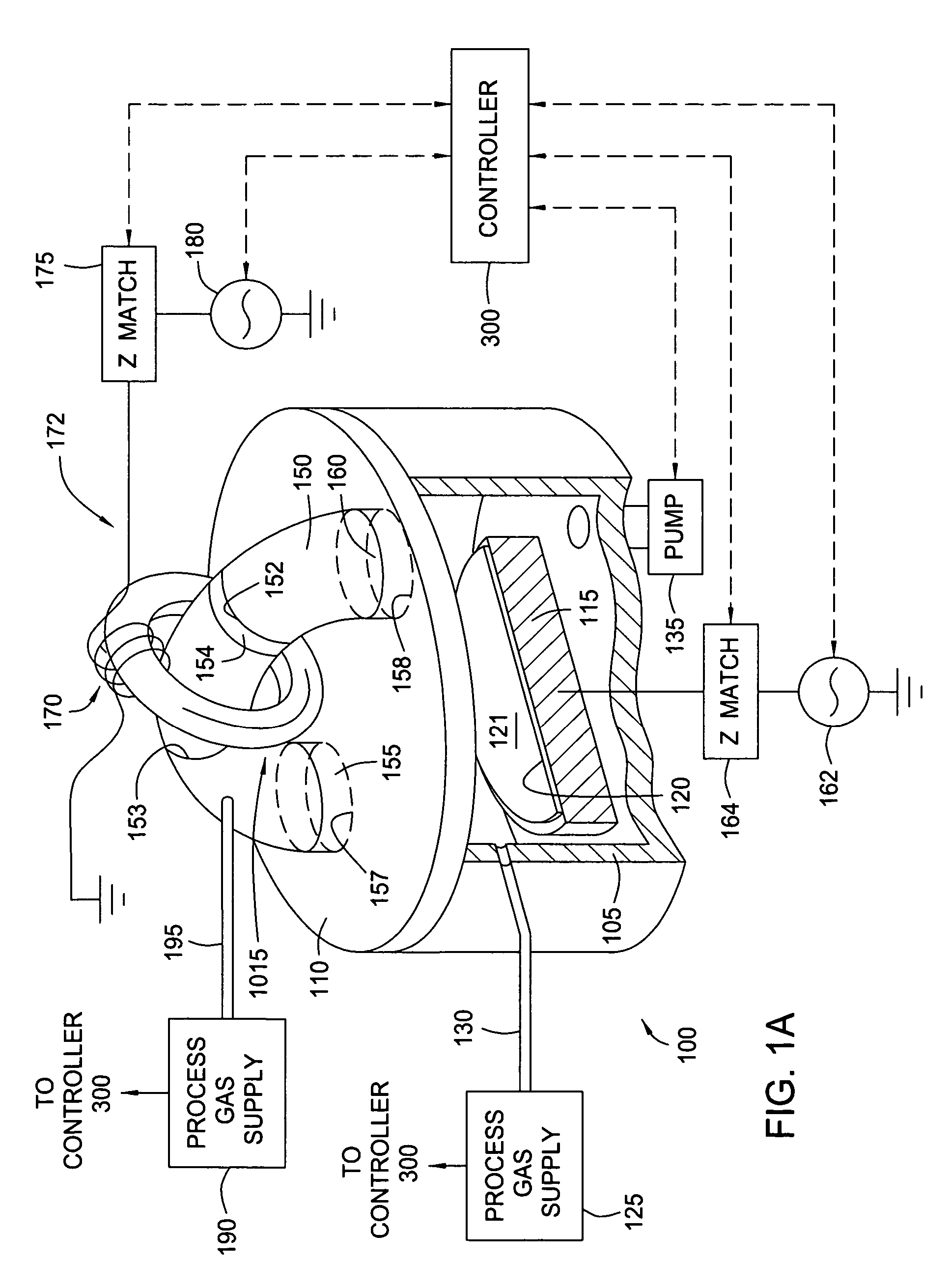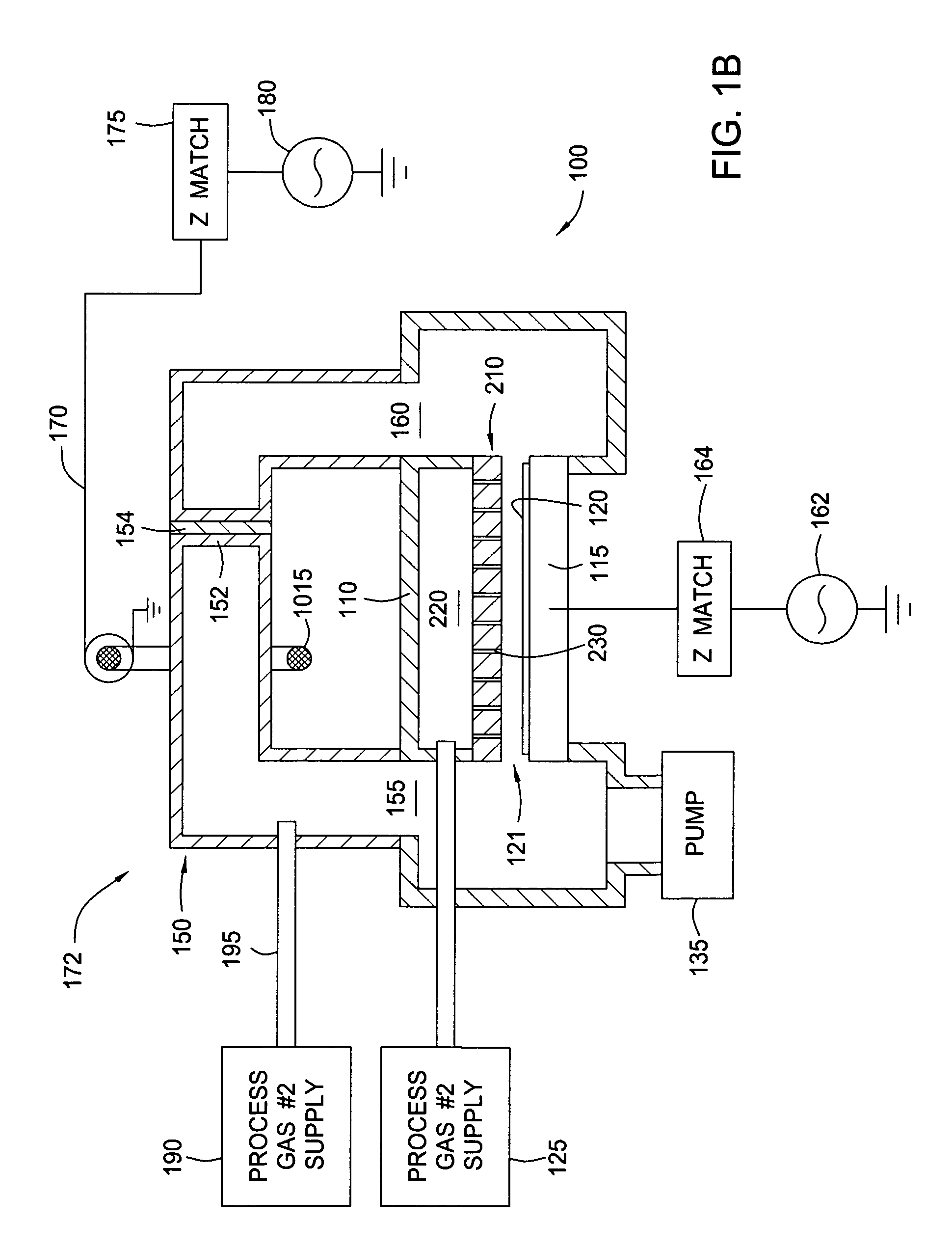Alternating asymmetrical plasma generation in a process chamber
a plasma generation and process chamber technology, applied in the field of plasma processing systems, can solve the problems of increasing the ion density in places, affecting so as to improve the uniformity of the plasma process
- Summary
- Abstract
- Description
- Claims
- Application Information
AI Technical Summary
Benefits of technology
Problems solved by technology
Method used
Image
Examples
example 1
[0104] Examples of different plasma processing recipes utilizing an amplitude modulation of RF power delivered to an orthogonal two plasma controlling device torroidal source are described below for a silicon dioxide etching process. The general process parameters used to etch the surface of a substrate having a silicon dioxide thickness of 20,000 Angstroms are as follows: a chamber process pressure of 30 mTorr, a flow rate of 60 sccm of hexafluoro-1,3-butadiene (C4F6), a flow rate of 60 sccm of oxygen (O2), a flow rate of 500 sccm of argon, a substrate pedestal temperature of 20 degrees Celsius, a substrate backside helium pressure of 25 Torr, a constant substrate pedestal bias of 2000 Watts at a RF frequency of 13.56 MHz, and a plasma processing time of 60 seconds. All RF power delivered to the other plasma controlling devices was delivered using dynamic impedance matching at an RF frequency of about 13.56 MHz+ / −1 MHz. The 1 sigma, or 1 standard deviation, uniformity values discus...
example 1a
[0105] Using a constant RF power level of 1000 Watts to both of the plasma controlling devices achieved an average etch rate of 3400 Angstroms / minute and a uniformity of about 8.4%.
example 1b
[0106] An average etch rate of 4930 Angstroms / minute and uniformity of about 1.6% was achieved using a rectangular-shaped amplitude modulated RF power pulse sequence, as shown in FIG. 6A, where the RF power delivered to one of the plasma controlling devices, at any given time, was at 2000 Watts and the other plasma controlling device was at zero Watts and the modulation pulse frequency was 0.1 Hz. The modulation pulse width was half of the period.
PUM
| Property | Measurement | Unit |
|---|---|---|
| Power | aaaaa | aaaaa |
| Power | aaaaa | aaaaa |
| Frequency | aaaaa | aaaaa |
Abstract
Description
Claims
Application Information
 Login to View More
Login to View More - R&D
- Intellectual Property
- Life Sciences
- Materials
- Tech Scout
- Unparalleled Data Quality
- Higher Quality Content
- 60% Fewer Hallucinations
Browse by: Latest US Patents, China's latest patents, Technical Efficacy Thesaurus, Application Domain, Technology Topic, Popular Technical Reports.
© 2025 PatSnap. All rights reserved.Legal|Privacy policy|Modern Slavery Act Transparency Statement|Sitemap|About US| Contact US: help@patsnap.com



